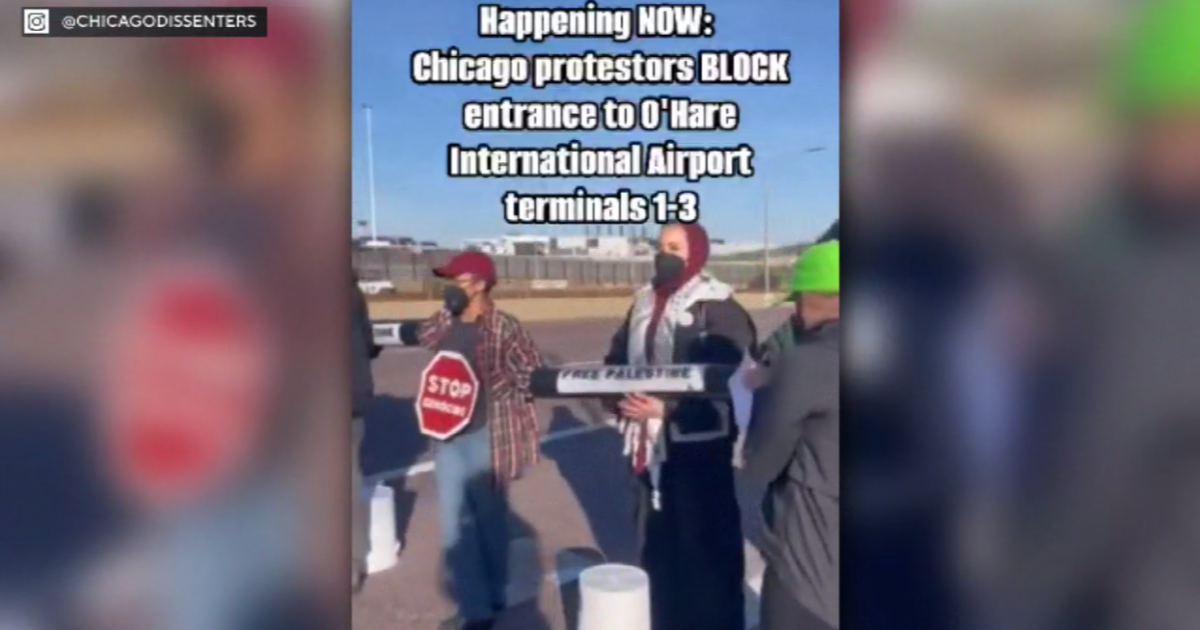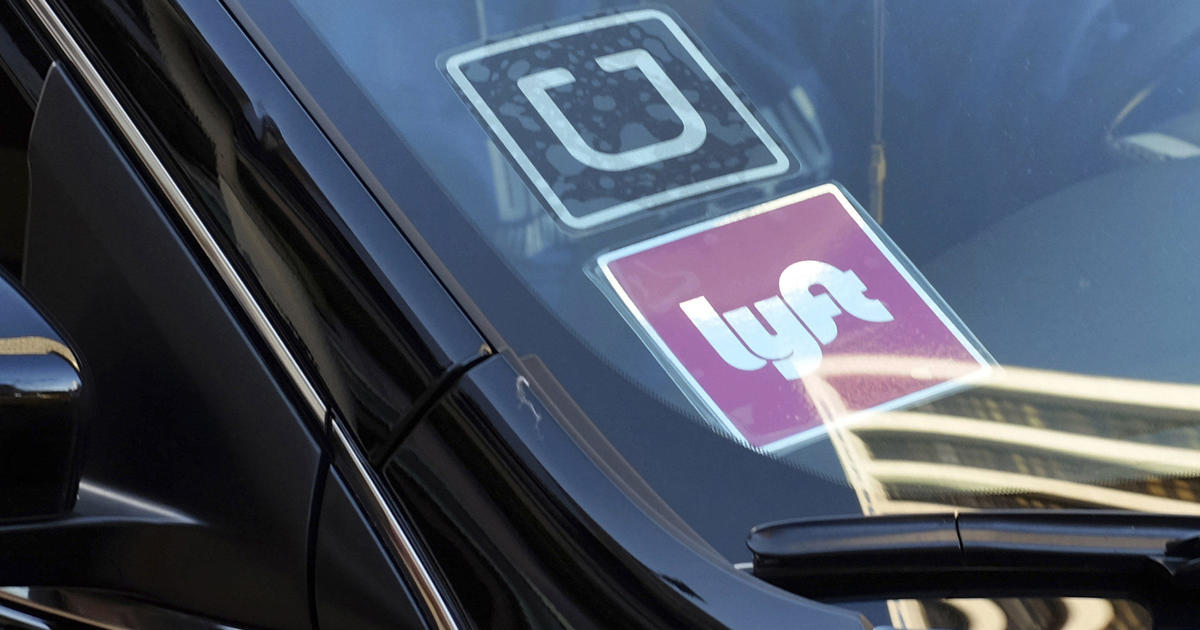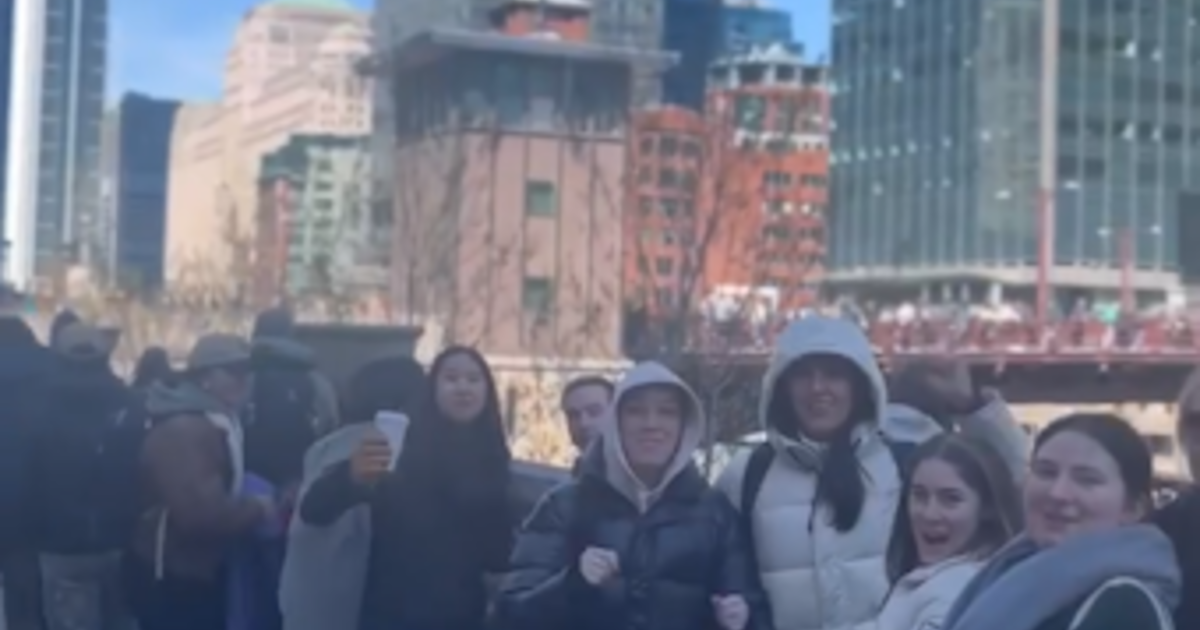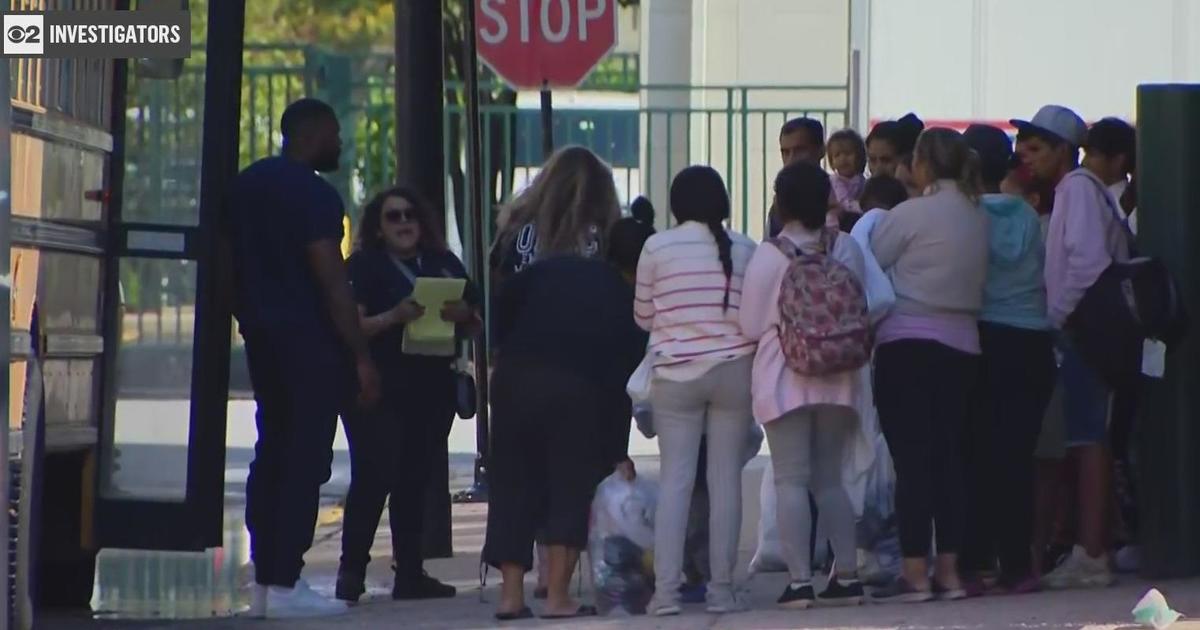Blago On Tape: 'It's Very Important For Me To Make A Lot Of Money'
UPDATED 05/05/11 3:49 p.m.
CHICAGO (CBS) -- As federal prosecutors continued to focus on allegations that Rod Blagojevich was trying to sell or trade an appointment to the U.S. Senate, jurors in his retrial heard the former governor saying "it's very important for me to make a lot of money."
Former chief of staff John Harris testified Thursday that he advised Blagojevich in November 2008 to appoint President Barack Obama's friend and adviser, Valerie Jarrett, to Obama's vacant Senate seat without getting anything in return but Obama's thanks and appreciation.
"There was some value in appointing Valerie to the Senate seat. She could be a strong ally of his," Harris testified.
Harris said he believed Jarrett could help Blagojevich engender some "good will" with the public and "could help him in his efforts to be a more effective governor, increase his own political standing and help him deal with some of the political negatives that he was facing at that time."
But Harris said Blagojevich wasn't interested in a deal that didn't help him make more money.
"He didn't want something that didn't satisfy his priorities, his first needs, which were more financial at this time and just getting out of the governorship," Harris testified.
"But you understand, it's very important for me to make a lot of money," Blagojevich said in a recorded conversation jurors heard Thursday. "I need the independence. I, I, I need the freedom."
"I've made my children and my wife vulnerable," he added. "How the hell am I gonna send my kid to college. That's the biggest f***ing downside that I, you know, that I'm really dealing with. And it's like, never again am I ever gonna f***ing screw my kids and my family, and put them in a position like this. I gotta fix this."
Harris had already told jurors on Wednesday that he had received a message from the Obama team on Nov. 10, 2011, that Obama "would be thankful and appreciative if the governor would appoint Valerie Jarrett to the Senate seat."
When told of that message the next day, Blagojevich told Harris: "F*** them."
A day later, Obama's chief of staff, Rahm Emanuel informed Harris that Jarrett had pulled out of consideration for the Senate seat to take a job at the White House.
Prosecutors: Offer Of Campaign Cash Leads To Blago Flip-Flop On Jesse Jr.
Emanuel also passed on a list of four preferred candidates that Obama would support for the seat; Congressman Jesse Jackson Jr., Congresswoman Jan Schakowsky, Illinois State Comptroller Dan Hynes and Illinois Veterans Affairs Director Tammy Duckworth, a wounded Iraq war veteran.
Prosecutors have contended that, realizing he couldn't convince the Obama administration to make a deal for their preferred candidates for the Senate seat, Blagojevich began cooking up new ideas to trade or sell the seat.
One possibility that had come up in conversations about the Senate seat was Congressman Jesse Jackson Jr., but Blagojevich had repeatedly said in November 2008 that Jackson was not an option.
"I mean Jesse Jr., it's a repugnant thought to me. I can't believe anything he says," Blagojevich said in a secretly recorded conversation on Nov. 12, 2008. "I don't believe him, I don't trust him. I used to like him, I don't like him anymore, you know, he's... I think he's a bad guy."
But less than a month later, Blagojevich was talking to Harris about seriously considering Jackson for the seat.
Prosecutors contend the reason for Blagojevich's flip-flop was that Jackson supporters were prepared to offer him a major campaign contribution if the governor picked Jackson for the seat.
"I'm gonna begin for the first time to objectively honestly consider him," Blagojevich said in a recorded conversation on Dec. 4, 2008, referring to Jackson as "the uber African-American."
"He's come to me with, through third parties, you know with offers of campaign contributions and help," Blagojevich added. "You know what I mean? $1.5 million; they've, they're throwin' numbers around."
During that conversation, Blagojevich and Harris discuss a number of possible African-American candidates that the governor might consider naming to the seat. Harris mentioned Cheryle Jackson, the head of the Chicago Urban League and a former communications director for Blagojevich.
But Blagojevich angrily shot down that idea.
"Cheryle Jackson's a f***in', there's no f***in' way. She's so f***in' incompetent and a f***in' liar," Blagojevich said. "She bounced a check. Forget about it, don't, don't put her in there."
Harris testified that Cheryle Jackson – no relation to Congressman Jackson – had given Blagojevich a campaign contribution in the form of a personal check, but the check had bounced.
Prosecutors wrapped up their direct examination of Harris after questioning him about Blagojevich's flip-flop on Jesse Jackson Jr.
The trial was cut short for the day – and the week – because defense attorney Aaron Goldstein had left sick for the day. Goldstein was slated to cross-examine Harris, but defense attorney Sheldon Sorosky said Golstein wasn't able to proceed on Thursday.
U.S. District Judge James Zagel agreed to send jurors home early Thursday and resume the trial on Monday.
"Having looked at Mr. Goldstein, I'm inclined to believe you," Zagel said. Goldstein had appeared pale and tired earlier in the day.
Blagojevich Lays Out Criteria For Senate Pick
On the day he learned Jarrett was taking a White House job and pulling out of the running for the Senate seat, Blagojevich provided Harris with a list of three criteria for his choice for the seat.
"These three criterion, in this order: Our legal situation, our personal situation, my political situation," Blagojevich said. "This decision, like every other one, needs to be based upon, on, on that. Legal, personal, political."
Harris explained that, by "our legal situation," Blagojevich meant he was looking for "someone that could help him deflect or otherwise reduce the problems that he was facing with the federal investigation."
As for his "personal situation," Blagojevich was referring to his family's financial problems, according to Harris. His "political situation" meant he was trying to exchange the Senate seat for a "position or career path that kept him politically viable."
Harris Feared Blago Was Holding Up Racetrack Legislation For Campaign Cash
Later Thursday, prosecutors began introducing the first evidence about Blagojevich's alleged scheme to squeeze racetrack owner John Johnston for campaign cash in exchange for legislation that would benefit the horse racing industry.
Harris testified that in November 2008, legislation that would have required the state's casinos to provide financial subsidies to the horse racing industry was awaiting the governor's signature.
Similar legislation had expired in the summer and Harris said Blagojevich supported extending the legislation for another two to three years, but had yet to sign a bill that would do so.
In late November 2008, Harris was getting calls from racetrack lobbyist Lon Monk – a friend and former aide to Blagojevich – from Blagojevich fundraiser Chris Kelly and from State Rep. Jay Hoffman, asking when Blagojevich would sign the legislation.
"It was costing the racetrack tens of thousands of dollars a day in lost subsidy each day that the governor did not sign it," Harris testified.
But Blagojevich was holding off on the legislation. In a call with Harris, he said, I'm not gonna do anything...wanna sit on it till I sort things through on all kinds of bills, you know, and see how it all fits in."
Harris testified that he wasn't sure what Blagojevich was talking about, because the racetrack bill wasn't tied to any other legislation and "There was no reason not to act on this bill."
Harris said he feared that Blagojevich was holding up the legislation in order to get campaign cash from racetrack owners, so he asked the governor's general counsel, Bill Quinlan, to try and convince the governor to sign the legislation right away.
Prosecutors contend that's exactly what Blagojevich was trying to do: squeeze racetrack owner John Johnston for a contribution before he'd sign the legislation.
Jurors heard a call between Harris and Quinlan after Quinlan had talked to Blagojevich about the issue.
"Did he express a reason why the delay?" Harris asked Quinlan.
"Let's just say, it is what you think," Quinlan said.
Harris said that, because it appeared Blagojevich was trying to get campaign cash in exchange for his support for the legislation, he washed his hands of the matter. He testified that he was going to leave it up to Monk to handle the situation, since Monk was a longtime friend of the governor and was working as a lobbyist for Johnston.
"I viewed this as a matter between the governor and his best friend of 25 years, Lon Monk, and they would work it out," Harris testified.
Todd Feurer, cbschicago.com



